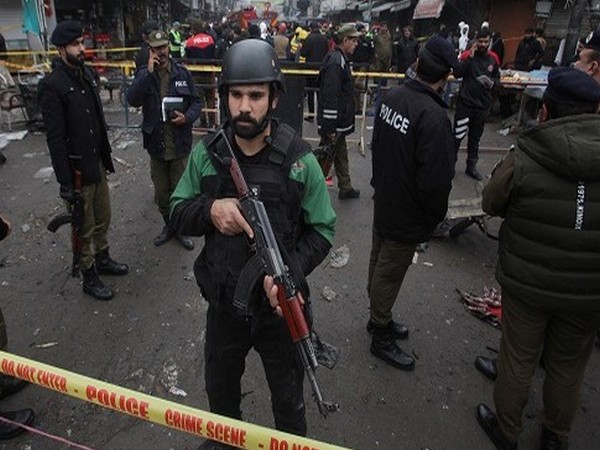PESHAWAR – Khyber Pakhtunkhwa Chief Minister Ali Amin Gandapur chaired a high-level meeting on Tuesday to finalize the province’s Counterterrorism Action Plan, aimed at eliminating terrorism and strengthening law and order.
Senior officials, including Chief Minister’s Advisor on Information Barrister Muhammad Ali Saif, the Chief Secretary, the Inspector General of Police, additional chief secretaries, administrative secretaries, divisional commissioners, and regional police officers, attended the meeting.The Counterterrorism Action Plan outlines 84 targeted actions across 18 key areas, built on seven core pillars: counterterrorism operations, political and social measures, legal reforms, governance improvements, general security measures, monitoring strategies, and public awareness.
Read Also: KP Police to Receive Reinforcements as CM Prioritizes Security Measures
The provincial government has assigned clear responsibilities to relevant departments and federal agencies, with strict timelines for implementation.Authorities will take decisive action to restore public trust by ensuring terrorists face swift and severe punishment. Law enforcement agencies will continue high-tech intelligence-led operations to dismantle militant networks, while counterterrorism laws will be enforced without exception.
Crackdown on Terrorists, Facilitators
Security forces will launch coordinated operations against terrorists and their facilitators, compiling a comprehensive database for surveillance and tracking. Schedule Four of the Anti-Terrorism Act will be updated regularly, ensuring all listed individuals remain under strict scrutiny. Authorities will also review and update bounty lists for wanted militants on a monthly basis.Government employees found aiding or facilitating terrorism will face immediate and severe disciplinary action. At the district level, monthly security assessments will evaluate emerging threats and recommend targeted countermeasures.
Boosting Security Personnel
The provincial government has decided to place civilian administration in a leadership role in counterterrorism efforts. To strengthen police and the Counter-Terrorism Department, officials have approved fast-track recruitments, advanced training programs, and the procurement of modern weapons and surveillance equipment. All recruitment and procurement processes are set to be finalized by the end of the month.Authorities will also seek enhanced coordination with Afghanistan to curb cross-border militancy.
Once federal authorities approve the terms of reference, a delegation will engage with Afghan tribal elders to discuss security cooperation.tracking explosives, arms, and illicit fundingThe plan includes strict monitoring of foreign-funded religious seminaries, ensuring financial transparency and compliance with regulations. Security agencies will implement digital tracking and AI-powered monitoring of chemicals used in explosives.
Also Read: Multiple Districts Urge Provincial Government to Halt Foreign Tourist Arrivals
A blockchain tracking system will oversee the transportation of explosive materials, preventing unauthorized movement.The National Database and Registration Authority (NADRA) will support authorities in monitoring arms dealers, while the government will upgrade the arms licensing system to track and regulate firearm manufacturing and sales. Security agencies will launch joint operations on cross-border smuggling routes to curb illegal arms trafficking.
The Counterterrorism Action Plan reinforces the government’s commitment to eliminating terrorism through technology-driven intelligence, intensified security operations, and strict legal enforcement. Authorities will ensure full implementation of all measures, holding state institutions accountable for maintaining national security.












